
Marisela Tachiquin

Virginia Portillo
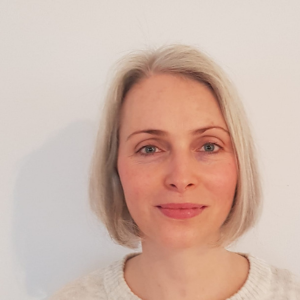
Clare Shelley-Egan
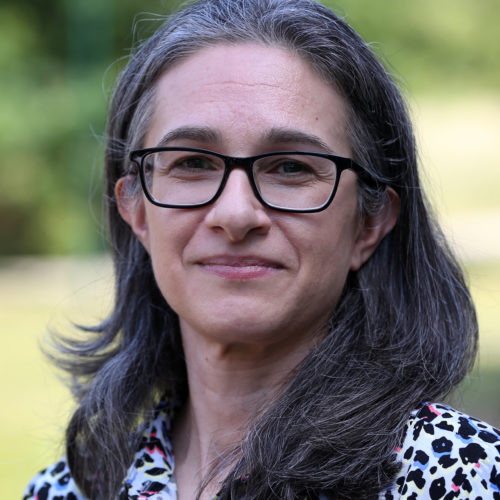
Ozlem Ulgen

Elvira Perez

Damian Okaibedi Eke

Favour Borokini

Helena Webb

Elisabeth Frankus
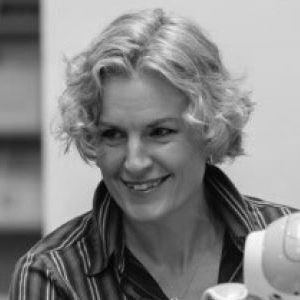
Carolyn Ten Holter
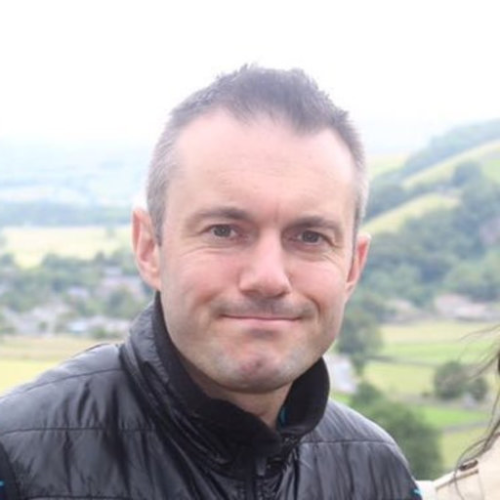
Vincent Bryce

Andy Crabtree

Alan Chamberlain

Lise Bitsch

Neelima Sailaja

Bernd Stahl

Peter Craigon

Kai Xu

Gabriel Udoh

Liz Dowthwaite

Muhammad Adamu

Paschal Ochang
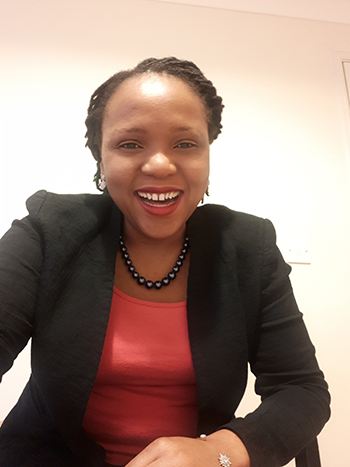
Kutoma Wakunuma

Mayen Cunden

Chris Greenhalgh

Dani Shanley

Amany Elbanna

Harriet Cameron

Helen Taylor

Hazel Sayers
Marisela Tachiquin
I started working at the University of Nottingham in August 2024 as a Research Fellow in Responsible Innovation for Health. My work will focus on research projects that examine the social impacts of innovation, healthcare data governance, and integrating ethics and responsibility into the processes of designing, developing, and implementing technology in healthcare. Before joining the University of Nottingham, I worked as a lecturer in Psychology and Gerontology at the University of Guadalajara in Mexico. During my time there, I supervised the design, implementation, and evaluation of innovative programs for community care of older adults. This role provided me with deep insights into the challenges older people face in their daily lives to achieve healthy ageing. I was also involved in planning and implementing the Dementia Friends Initiative in Mexico. This initiative, led by the Alzheimer’s Society UK, aims to create dementia-friendly communities and address the growing impact of dementia at the individual, family, and social levels. As a researcher, I am particularly interested in exploring how artificial intelligence can be used to develop friendly and responsible technology to support healthy ageing and the multiple benefits it can bring to society.Virginia Portillo
Dr Virginia Portillo, Researcher, Horizon Digital Economy Research, University of Nottingham. Virginia is a multidisciplinary researcher at Horizon, the TAS Hub and ORBIT RRI practitioner. She has a science background and is experienced in RI implementation, participatory research, co-design, research ethics governance, and multi-stakeholder engagement. Her key areas of interest include embedded RI practice in the development and governance of digital technologies; investigating citizens’ perceptions, experiences, and ethical concerns regarding autonomous systems; trustworthy AI; transparency and data privacy by design; policy impact and STEM public engagement.
Clare Shelley-Egan
My goal as an STS scholar is to explore and understand the possibilities and challenges of embedding technology in society in a responsible, inclusive and democratic manner. I am interested in a range of technologies and scientific domains. I am also interested in the broader conditions in which we develop, debate and disseminate technologies. These broader conditions include the policy, funding, and research landscape in which new science and technologies are promoted, funded and developed. In particular, I have been engaged in empirical and conceptual work in the cognate areas of ‘responsible development’ and ‘responsible research and innovation’. I have functioned as deputy coordinator on two large EU projects, namely the FP7 SATORI (Stakeholders Acting Together On the ethical impact assessment of Research and Innovation) project and the Horizon 2020 RRI-Practice project. I have acted as work package leader on several other projects funded at both EU and national levels.
Ozlem Ulgen
I joined the School of Law at the University of Nottingham in September 2021 as Associate Professor in Law. I specialise in the law, ethics, and regulation of AI and robotics relating to the military and civilian sectors. My work focuses on protecting human agency, rights, and attribution of legal responsibility. In April 2023 I submitted written evidence to the House of Lords Select Committee on Artificial Intelligence in Weapon Systems. I am an EPSRC SPRITE+ Expert Fellow and Principal Investigator for the 2023 Royal Society APEX Award (APX\R1\231097) project “Responsibility for human-AI split-second decision-making (ROUTE)”. I am involved in international law-making and standard-setting work for the UN, UNESCO, IEEE, and ECPAIS, and act as Academic Legal Expert to the UN Group of Governmental Experts on Lethal Autonomous Weapons Systems, Chair of the Accountability Expert Focus Group for IEEE Ethics Certification Programme for Autonomous and Intelligent Systems, and Expert Member of IEEE P7000 and P7007.
Elvira Perez
Elvira is Professor of Mental Health and Technology at the University of Nottingham and works between the School of Medicine and Computer Science.
Relevant for the Digital Futures Group is her role as Director of Responsible Research and Innovation (RRI) at the UKRI Trustworthy Autonomous Systems (TAS) Hub.
Elvira’s research portfolio is highly interdisciplinary with funding from UKRI AHRC, MRC but mostly EPSRC and NIHR. Over the years, she has been specialising on assessing the impact that technology has on the mental wellbeing of groups with protected characteristics (children, young people, older adults) applying co-design and participatory methods (e.g., Youth Juries). Her most impactful research on digital mental health includes issues of data ethics and privacy, user and stakeholder engagement, co-production, and responsible innovation. Over the last six years, Elvira has been working with groups of young people and has brought to the forefront of policy innovation their concerns and recommendations on digital mental health. Some of the work she is most proud of includes the recent collaboration with Aardman Productions on the co-development of animated movies to increase digital literacy https://www.whatsupwitheveryone.com/
When Elvira is not supervising students, she is usually applying for funding or trying to write journal papers. Lately she has been working as guest editor for a Special Issue titled for Reflections on Responsible Research and Innovation for Trustworthy Autonomous Systems at the Journal of Responsible Technology
Damian Okaibedi Eke
Damian Okaibedi Eke is Research Fellow at the Centre for Computing and Social Responsibility (CCSR) at De Montfort University, UK. Dr Eke is the Data Governance coordinator for the EU Human Brain Project. He also leads the International Data Governance Taskforce for the International Brain Initiative (IBI) working group on Data sharing and standards. His research interests cover critical philosophical issues at the intersection of Technology, Data and Society including; Data Governance, Ethics of Emerging Technologies, Responsible Innovation and ICT4D.
Favour Borokini
Favour Borokini is a PhD student with the Horizon Centre for Doctoral Training at the University of Nottingham, where she is researching legal and ethical implications of alternate identity representation through 3D avatars. In the past, Favour worked with various organisations within and outside researching the impact of emerging technologies on social equality, with a focus on African women, publishing a number of reports and papers on the subject.
At Pollicy, an award-winning East African feminist collective, Favour led the African Women in AI project which investigated the potential impact of AI on African women as well as the challenges of African women who are AI professionals as a Data and Digital Rights Researcher.
Favour enjoys animation and romantic and speculative fiction and thinking about ways technology can be used for good.
Helena Webb
I studied Social and Political Sciences for my undergraduate degree (University of Cambridge) and my PhD (University of Nottingham) explored interactions between practitioners and patients in healthcare consultations. During these studies I gained a thorough grounding in substantive and conceptual issues connected to the social, legal, ethical and cultural implications of science, medicine and technology, and developed my own research interests in the conduct of granular analysis to observe the ongoing accomplishment of social order.
My first post-doc position was in the Work, Interaction and Technology research centre (WIT) at King’s College London (KCL). WIT is an international centre of excellence in video-based field studies and in particular focuses on the ways in which artefacts, tools and technologies feature in workplace conduct and collaboration. Whilst at WIT I worked on a number of research projects on topics including optometry, obesity and robotic surgery.
In 2014 I joined the Department of Computer Science at the University of Oxford. I was based in the Human Centred Computing (HCC) theme and worked as a Senior Researcher on a number of interdisciplinary projects that combined social science and computer science approaches. These included: Digital Wildfire on the spread of harmful content on social media; UnBias on the user experience of algorithm driven online platforms; ReEnTrust on mechanisms to foster user trust in algorithmic processes; RoboTIPS on developing responsible robotics for the digital economy; and Lab Hack, a novel open science initiative to address resource scarcity in STEM in the global south. Whilst working at Oxford I also became involved in various teaching activities in the Department of Computer Science. I co-convened modules on Requirements, Computers in Society, and Ethics and Responsible Innovation. I also tutored undergraduate and postgraduate student projects and dissertations, and co supervised four doctoral students in the Department.
I joined the University of Nottingham in August 2021. I will be involved in research projects that explore the social impacts of innovation, and that seek to identify effective and novel means to embed ethics and responsibility into processes of technological design, development and implementation. I will also take part in teaching in the School of Computer Science.
Elisabeth Frankus
Elisabeth Frankus holds a PhD in Sociology and a Magister (rer. soc. oec) in Sociology and Educational Sciences, is qualified Prince2 practitioner and has further education in business studies, coaching and training. Since 2008 she has been gaining experience with European projects as project coordinator, evaluator and as content developer in the fields of health, education, economic, public security, autonomous mobility and Responsible Research and Innovation (RRI). Her scientific approach leads to diverse publications and presentation. Since April 2015 Elisabeth Frankus has been working as senior researcher at the Institute for Advanced Studies (IHS) in the research group “Science, Technology and Social Transformation” focusing on the topics of RRI, Artificial Intelligence, Virtual Reality, participatory methods and ethics. She has been teaching quantitative and qualitative research methods as well as digital ethics and business ethics at different universities such as the University of Vienna, the Vienna University of Economics and Business, the New Design University, the University of Applied Sciences Upper Austria and the University of Applied Sciences Vienna since 2010.
Carolyn Ten Holter
Dr Carolyn Ten Holter specialises in responsible innovation approaches in a variety of novel technology domains, including autonomous vehicles, ICT sustainability, and quantum computing. She has a particular interest in policymaking and governance for novel technologies, and expertise in participatory and stakeholder-inclusive methods. As part of the RTI she leads the work on ResQCCom; a workpackage in the TAS:RAILS project on autonomous systems; consults on the PARIS-DE and AMHDM projects, and liaises with the RTI’s networks of civil society organisations, projects, and other organisations that work on similar themes. She has degrees in law, librarianship & information science, marketing communications, and computer science. Her doctoral research focused on responsible innovation in quantum computing. Previous projects include TAS:RoAD and ORBIT. She sits on the BCS Quantum Working Group.
Vincent Bryce
Vincent Bryce completed his PhD at the Horizon Centre for Doctoral Training at the University of Nottingham in 2023, in conjunction with the De Montfort University Centre for Computing and Social Responsibility, and holds an MA in Human Resource Management.
His thesis explored the ‘business case’ for responsible innovation, with a particular focus on Human Resources Information Systems.
His studies use HR technologies as a lens to explore real-world challenges of responsible innovation, and to critically engage with the responsibility dynamics of digital technology innovation and commercialisation processes.
Interests include the expanding scope of organisational data collection, ways in which emerging technologies challenge responsible innovation methodologies, supplier perspectives on responsible technology use, implications of emerging technologies for philosophies of management, responsible innovation practices in different cultural settings, practitioner perspectives, and the relationship between organisational culture and responsible innovation implementation.
He is a member of WEORG, the Work, Employment and Organisation Research Group at the University of Nottingham and currently works full time as a practising Human Resource Management professional, with an ongoing interest in research. LinkedIn – Researchgate
Andy Crabtree
Andy Crabtree is Professor of Computer Science at the University of Nottingham. He has a background in philosophy and sociology and conducting interdisciplinary research in computing. He is a leading proponent of ethnomethodologically-informed studies, including ethnographic studies, of technology in use and prospective innovation contexts. His research shapes innovation around the social character of computing and its acceptability to citizens directly affected by the ongoing development of the digital world and its integration with everyday life. He was the first ethnographer to be awarded a Senior Fellowship by the EPSRC, holds a grant portfolio of +£30M, and has published over 150 peer-reviewed scientific articles, along with three textbooks on the relationship between ethnography and the research and development of computing systems. He has a Google h-index of 53. He is currently Co-I with the Horizon Digital Economy Hub, the DE investigator-led project Experiencing the Future Mundane, and the Trusted Autonomous Systems Node on Governance and Regulation plus various TAS projects that seek to enable responsible innovation in the development of autonomous systems and AI.
Alan Chamberlain
Dr Alan Chamberlain is a Senior Research Fellow in the Mixed Reality Lab, University of Nottingham. He is the Principal Investigator on the EXIoT Project – Experimental IoT: Explorations in Sound Art and Technology (working with Professor Dave De Roure at the University of Oxford) and a joint Principal Investigator on the TAS RRI project. He was a UKRI funded Researcher in Residence (Principal Investigator) at the Digital Catapult, London. He is the Creative Sector Theme Lead on the UKRI Trustworthy Autonomous System Hub. He is a Co-Director (Co-I) of the AHRC nTAIL Network – Theatre, AI and Ludic Technologies, and a member of the AHRC Peer Review College.
He has published numerous papers on many aspects of Human Computer Interaction and has successfully obtained funding for a wide range of research projects, working with industry (BBC, BT & Microsoft), artists and leading experts across a variety of academic fields. He has been a Visiting Academic at the University of Oxford and Visiting Researcher at Swansea University. He is currently a Visiting Professor at the world leading Copenhagen Business School. He is the Chair of Future Research for EUSSET, an Editor for the Springer Nature Journal – Personal and Ubiquitous Computing. He has been part of the scientific program committee for many conferences, including ACM CHI and CSCW. He is a member of the Audio Mostly Conference Series Steering Committee and Chaired the conference in 2019, bringing it to the University of Nottingham. From 2015 to 2018 he co-directed the Personal Data and Trust Network (Social and Cultural Innovation strand) – EPSRC, Digital Catapult & Innovate UK
Lise Bitsch
Lise BITSCH, female, Ph.D., Senior Project Manager at the Danish Board of Technology Foundation, work-package lead on Responsible Research and Innovation (RRI) in the EU flagship Human Brain Project, with experience as coordinator of the EU co-creation project GoNano (Governing Nanotechnologies through societal engagement), and from working on RRI in several other EU projects. She specialises in citizen and expert engagement on science and technology, and she has a background in Science and Technology Studies (STS) from the University of Twente in the Netherlands
Neelima Sailaja
Neelima researchers the socio-technical challenges of personal data use, particularly within data drive experiences (in partnership with the BBC). She works on interdisciplinary projects involving edge computing, HDI, HCI, media, legal tech and digital economy.
Bernd Stahl
Between 2010 and 2022 I served as Director of the Centre for Computing and Social Responsibility of De Montfort University.
I am a Member and Director of ORBIT-RRI limited, a non-profit spin-out company owned by De Montfort University and the University of Oxford which is dedicated to furthering responsible (research and) innovation.
Most of my time is spent conducting research, which on occasion leads to publications, but more frequently to the administration of proposals and research projects.
I am currently involved in the EU Future and Emerging Flagship Human Brain Project as Ethics Director, the environMENTAL project as leader of the responsible innovation activities and the iRECS project. In the past I have coordinated the following EU projects: EMBRACE, SHERPA, Responsible-Industry, CONSIDER and ETICA. In collaboration with Marina Jirotka I led the EPSRC projects Framework on RRI in ICT and ORBIT which led to the ORBIT spin-out.
Peter Craigon
Peter is a multidisciplinary researcher with a background that includes History, Animal Behaviour (particularly dogs and guide dogs), Science and Technology Studies, Food, Research Ethics and Responsible Research and Innovation (RRI).
Kai Xu
Dr Kai Xu is an Associate Professor in the School of Computer Science, University of Nottingham, co-director of its Visualization, Text Analytics, and Graphics (VisTAG) group. His main expertise is data science, particularly data visualisation. He is one of the directors of the EuroGraphics UK Branch. His current research focus is human-machine teaming that enables the collaboration between human experts and AI systems. The core research challenges include explainable AI, to ensure users understanding and trust towards the AI systems, and the ethical implications of the AI recommendations in decision making. His research has been funded by research councils (such as EPSRC and EU FP7), government department (such as Dstl), and companies (such as CGI and Genetec), with a total project budget of over £12 million. Kai has published extensively in the top visualisation journals and conferences, and some of his work was recognised with international awards.
Gabriel Udoh
Currently a PhD candidate in Autonomous Weapons Systems and International Humanitarian Law at Europa-Universität Viadrina, Frankfurt (Oder), Gabriel is a researcher in AI law, policy, and ethics. His thesis analyses ethical and legal implications of introducing autonomy into lethal weapons’ systems. Previously, he won the DAAD-funding for his project ‘“Intelligent” Weaponry; Laws and Ethics’ and later joined the International AI for Earth Observation Lab in Munich as a Beyond Fellow. With a passion for exploring the intersection between technology and ethics/law, his research spans across a wide range of areas, including ethical/responsible uses of AI, smart city technologies, digital colonialism, privacy, comparative analysis in the application of technologies, autonomy in weapons systems and more. As a strong advocate for “human-friendly” autonomous systems, Gabriel is committed to designing technologies that prioritize the needs and well-being of humans. Additionally, he possesses an intermediate level of proficiency in Python programming, allowing him to understand sophisticated software solutions to complex problems.
Liz Dowthwaite
I am currently working on a range of projects within the Horizon Digital Economy Research Institute and the Trustworthy Autonomous Systems Hub.
My PhD thesis looked at crowdfunding in the creative industries, particularly looking at attitudes and motivation, and the roles of altruism and reciprocity in backing behaviour.
I have a multi-disciplinary research background grounded in psychology and human factors. My research interests revolve around how motivation, human values, and attitudes relate to behaviour. I am especially interested in participation in groups/crowds, particularly online (eg citizen science, social media, crowdfunding) and in technology-mediated activities. In addition I am also interested in the (positive) effects of the online world on psychological wellbeing, the role of autonomous systems in wellbeing, and science communication.
Muhammad Adamu
Muhammad Adamu is a Research Fellow in Responsible Innovation for Health at the University of Nottingham, UK. His current research focuses on establishing the AI in/from Africa theme via responsible research and innovation, healthcare data governance, and responsible digital futures. Before joining UoN, he was a Senior Research Associate for Imagination Lancaster, a design and architecture led lab at Lancaster University, UK. He is strongly associated with the African perspective in Human-Computer Interaction and Artificial Intelligence. He received his PhD in Computer Science from the School of Computing and Communications, Lancaster University, UK.
Paschal Ochang
Paschal Ochang holds a Bachelors degree in Computer Engineering, a Masters degree in Telecommunications Engineering, and a Doctoral degree in Information systems. Concurrently, he serves as a Research Fellow at the Observatory for Responsible Innovation (ORBIT) and as a Research Fellow at the University of Nottingham. Additionally, he was the affiliated with the Centre for Computing and Social Responsibility (CCSR) of De Montfort University, he is also a co-founder of the Africa Data Governance Initiative (ADGI). His expertise encompasses various disciplines, including Future and emerging technologies, Computer networks, Telecommunications, Neurodata and data governance and Neuroethics.
Paschal has actively contributed to several notable projects, including the recently concluded EU Human Brain Project, the Scientific Understanding and Provision of an Enhanced and Robust Monitoring system for RRI (SUPER MoRRI) project, the Safe Autonomy for Leading Uncrewed Systems (SALUS), the Guide to Regulations of Artificial Intelligence Legislation (GRAIL) project, and the Responsible Generative AI for SMEs in UK and
Kutoma Wakunuma
Dr. Kutoma Wakunuma is currently Associate Professor at De Montfort University where she is also Interim Co-Director of the Centre for Computing and Social Responsibility. Her research interests and expertise primarily focus on current and emerging digital technologies and their ethical implications on modern society in both the Global South and the Global North. She examines issues around Responsible AI, digital inclusion and development, Sustainable Development Goals (SDGs), responsible innovation, and gender-related issues in digital technologies.
Dr. Wakunuma has worked on a number of EU funded projects, some of which include iRECS, RRING, SATORI, CONSIDER and ETICA where she has taken on a such roles as work package lead and supporting project coordination. Dr. Wakunuma is a regular speaker on issues related to understanding how technology impacts society. She has been invited to convene and speak at high level international forums, including the UNs Science Summit of the General Assembly and the UNs Internet Governance Forum where her insights contribute to global discussions on technology and society. She serves as a European Commission Ethics Advisor. Dr Wakunuma is also an extensively published academic in her field.
Mayen Cunden
My postdoctoral research originated in the study of social informatics based on interactionist and emotionalist conceptual modelling to explain how the nature of interactions and the exchange and combination processes (embodied in social capital and social exchange theories) influences and affects interdisciplinary (research) collaboration. This led to my current advocacy and practice of Design Thinking as a research methodology to advance collaborative and co-operative stakeholder engagement.
My current work as an independent researcher, on responsible research and innovation (RRI) and the ethics of future emerging technology revolve around technology and innovation for social good. For example, I:
- initiated, convened and led a consortium of academics and civil society organizations (based in South Africa, Mexico, Chile, Brazil and the UK) in the presentation of research on Global South 4Better AI Futures, at the United Nations General Assembly 77, Science Summit, to explain the need for an ethical and actionable Global South AI Framework.
- advanced the integration of reflexivity (or continuous reflection by the researcher), in RRI themed research projects (such as, the EU EMBRACE and Human Brain Projects), for example, through my participation in the EBRAINS Workshop, HBP Partnering Projects: What role does ethics play in data governance and how does this influence the data governance work in the Human Brain Project?
A Responsible Digital Future, I believe, must include civil society involvement beyond and in addition to, voices from academia, government and industry for it allows us to reflexively understand and define what is of constitutive value to us as researchers, thereby giving us the awareness of what we should care about, how we relate to one another and the world around us, in relation to developing and maintaining that ethical, responsible digital future.
I am an Associate Editor of the Journal of Responsible Technology (formerly known as The ORBIT Journal).
Chris Greenhalgh
Chris Greenhalgh is a Professor of Computer Science in the School of Computer Science at the University of Nottingham, where he is a co-leader of the Mixed Reality Laboratory and a member of Horizon Digital Economy Research Institute. He gained a first class BA (with distinction) in Electrical and Information Sciences from Cambridge University in 1991. He then worked in the data communications group at the GEC Hirst Research Centre for two years before moving to Nottingham, where he gained a PhD for his work with large scale collaborative virtual environments in 1997. His thesis was a winner of the 1998 BCS/CPHC Distinguished Dissertations in Computer Science competition. He has been a member of academic staff in the School of Computer Science since 1996. He has served as Senior Tutor and Director of Taught Programmes for the School, and contributed to the University’s adoption and use of Moodle, an open-source virtual learning environment.
Dani Shanley
Dani Shanley is currently a post-doctoral researcher at Maastricht University working on the GuestXR project, which is about the construction of intelligent virtual environments. Her expertise is mainly within science and technology studies (STS) and the philosophy of technology, with a particular focus on reflexive, participatory design methodologies (or, responsible innovation), such as social labs and value sensitive design (VSD). She is primarily interested in questions concerning the ethics and politics of emerging technologies.
Dani recently defended her PhD, entitled ‘Making Responsibility Matter: The Emergence of Responsible Innovation as an Intellectual Movement’
Amany Elbanna
Amany Elbanna is professor of Information Systems and Digital Transformation at Royal Holloway University of London. Amany holds a PhD and MSc in Information Systems from the London School of Economics specialised in the social studies of information technology relating to development, implementation and use and how information technology could succeed in practice. Her current research focuses on enterprise conversational AI, AI business systems and digital ways of working. She has over 100 articles in refereed top international journals and conferences and won the International Federation of Information Processing (IFIP) Service Award in 2020. Amany is a regular speaker in industry and her research is featured in The Financial Times, Computer Weekly and The Manufacturing Magazine. She is a co-founder of the UK Chapter of the Association of Change Management Professionals (UK-ACMP) and the past Director-elect of Professional Development. She is the current Vice-chair of IFIP 8.6 on Technology Adoption and Diffusion and coming Chair of IFIP 9.1 on ICT and Work.
Harriet Cameron
I’m Harriet – better known as Alfie – and I am a multidisciplinary researcher at the University of Nottingham with a passion for all things ethics and social justice. My background is in Human Geography and Computer Science, although my research typically also bleeds into Robotics, Arts, Museum Studies, Sociology, and Psychology. My current research is around the ethical and accessible design and integration of technologies, with a trend towards exploring data, power, and trustworthiness.
Helen Taylor
Helen is Research Projects Manager for Applied Research Collaborations (ARC) at the University of Nottingham. Working with patients/PPI (stroke survivors and carers) in the area of rehabilitation. She manages a portfolio of research projects within the ARC BCREI Theme in the School of Medicine. Building Community Resilience and Enabling Independence, the theme undertakes research to support independent living, improved care for stroke survivors and coordinated multi-service care, particularly for older people.
Helen also manages the operations of the Nottingham Stroke Research Partnership Group (NSRPG) – group of stroke survivors and carers who work with stroke researchers from the University of Nottingham. The Group regularly reviews stroke research proposals to ensure those with lived experience have input to research projects. Lay members may also serve on research study steering groups or participate in research studies themselves. Helen is passionate about patient and public engagement and involvement in research, and believes there should be no research about us, without us. The Group’s aim is to ensure stroke research conducted locally involves stroke patients and carers and is informed by their needs and wishes. https://www.atastroke.com/
Hazel Sayers
Hazel is Knowledge Exchange and Impact Officer at the EPSRC funded Horizon Digital Economy Research institute and supports the operations of the Cobot Maker Space and Responsible Digital Futures group within the School of Computer Science at the University of Nottingham. She previously worked as Project Manager to the Stroke Theme in the Collaboration for Leadership in applied Health Research and Care (CLAHRC) and Clinical Theme Co-ordinator to the Stroke Programme within the East Midlands Academic Health Science Network (EMAHSN).
